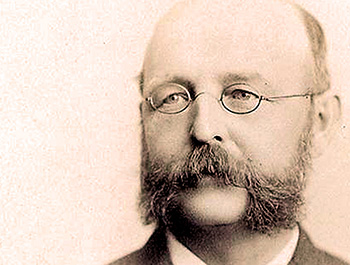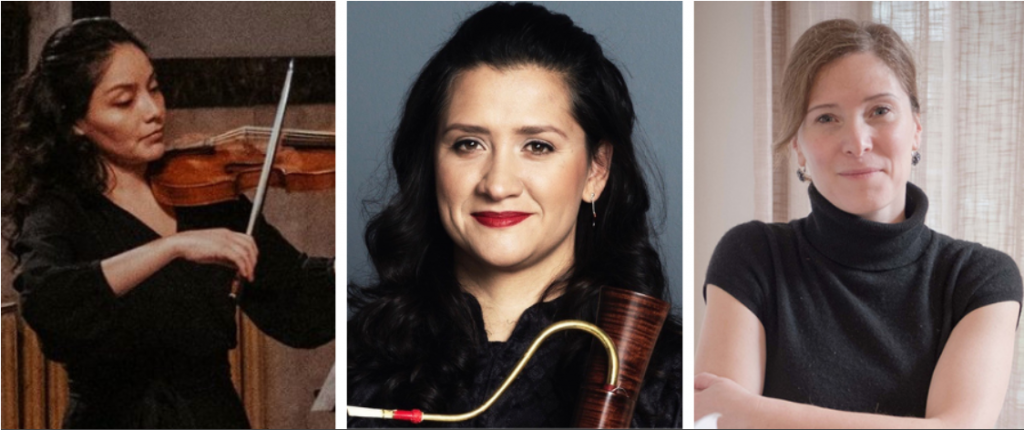by Daniel Hathaway
There’s nothing on the concert calendar for today, but while waiting for Northeast Ohio’s classical concerts to rouse themselves from a well-deserved, post-holiday nap, here’s an interesting listen to recommend.
Les Délices has re-released its SalonEra second season program Phoenix of Mexico as an audio-only podcast. “Bassoonist Catalina Guevara Víquez Klein, violinist Karin Cuellar Rendon, and mezzo-soprano Raquel Winnica Young (pictured) explore personal connections to Sor Juana Inés de la Cruz (1648-1695), the 17th Century Mexican nun who was a visionary poet, intellectual, and proto feminist. Our guests explore her legacy in music by Jose Marin, Antonio Durán de la Mota, Rafael de Castellanos, and others.” Listen here.
For details, visit our Concert Listings.
TODAY’S ALMANAC:
January 9 marks the birthdays of American professor and composer John Knowles Paine (1839, in Portland, Maine, pictured) and of longtime Metropolitan Opera administrator Rudolph Bing (1902, in Vienna).

Bing was famous for his tiffs with singers. He fired Maria Callas in 1968, and joked that given his experiences with Helen Traubel, he should have named his autobiography Nobody Knows the Traubels I’ve Seen rather than 5000 Nights at the Opera.
January 9 also witnessed the first performances of a number of noteworthy works: Richard Strauss’ Death and Transfiguration, (NY Philharmonic, 1892). Debussy’s Estampes and Gaspard de la nuit (Spanish pianist Ricardo Vines, Paris, 1904 and 1909), Schoenberg’s String Quartet No. 4 (the Kolisch Quartet in Los Angeles, 1937), Bela Bartók’s Rhapsody in two movements (clarinetist Benny Goodman, violinist Joseph Szigeti, and Bartók at the piano, New York, 1937), Roger Sessions’ Symphony No. 2 (1947 by Pierre Monteaux and the San Francisco Symphony), Kurt Weill’s opera Street Scene (1947 in New York’s Adelphi Theater), and Walter Piston’s Symphony No. 3 (1948 by Koussevitsky and the Boston Symphony).
That Piston Symphony won the Pulitzer Prize for 1948, but is rarely performed today, which brings up the subject of prizes in general, and the shelf life of musical works after their first performances specifically. Here’s a history of the Pulitzer awards and a list of winners since the musical category was added in 1943. Which composers have been over-recognized during those years and which have been excluded from consideration? How many of the pieces that won awards are still being performed?




